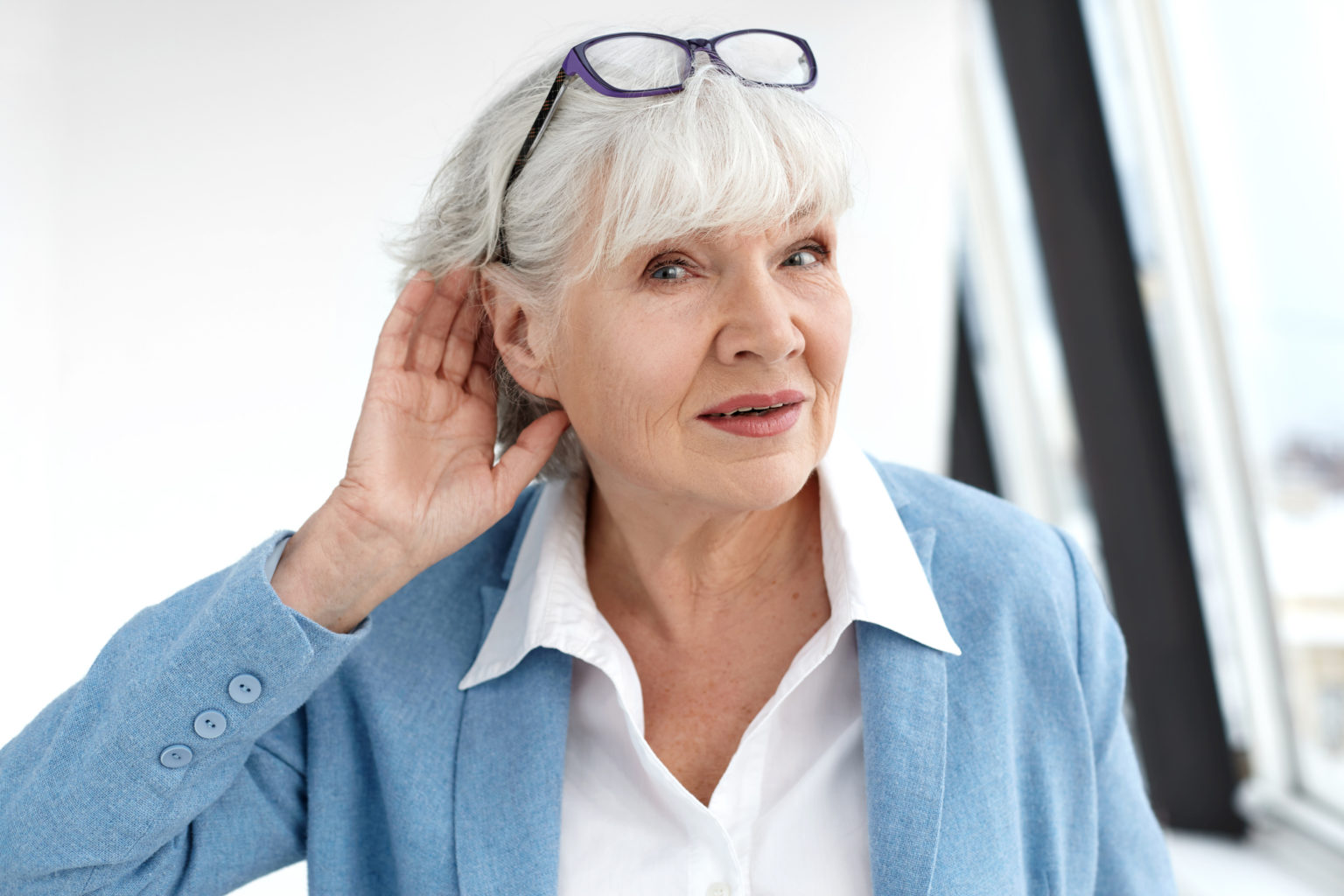Studies Confirm Sensory Loss Raises Risk of Dementia

Vision problems, hearing loss, and a diminished sense of touch, taste, and smell all become more common as we grow older. And so do Alzheimer’s disease and other types of dementia. Is there a connection? Scientists have long suspected that there is, and recent studies are helping to explain it.
In 2019, the University of Michigan researchers released the results of a study showing that among seniors who are diagnosed with hearing loss, those who do not receive a hearing aid are almost 20% more likely to develop dementia than those who do. Getting a hearing aid lowers the risk of depression, anxiety and falls—all of which can be factors in dementia. Raising awareness of this study is so important because only 12% of people with a formal diagnosis of hearing loss ever get hearing aids!
A 2018 study published by JAMA Ophthalmology showed that vision loss is associated with cognitive decline in older adults. The researchers from the University of Miami said, “The takeaway is that we need to pay more attention to preventing and treating vision loss to possibly reduce the rate of cognitive decline.”
At the 2019 annual Alzheimer’s Association International Conference, several studies were presented that examined the relationship between sensory loss and dementia. One from the University of Washington showed that having vision or hearing loss raises the risk—and having both at the same time compounds the effect, raising the risk even more. A second study, this one from the University of California, San Francisco (UCSF), showed that even mild sensory impairment could raise the risk, and that includes the sense of smell, taste, and touch, as well.
The relationship between cognitive problems and sensory loss is a complicated one. The University of Michigan team noted, “The loss of nerve impulses from the ear to the brain, and loss of cognitive ability leading to dementia, could be part of the same aging process.”
We also know that dementia changes the way the brain processes sensory input. A senior with dementia may have nothing wrong with their eyes or ears, but the disease interferes with the brain’s ability to make sense of sights and sounds.
- Diane Zheng of the University of Miami team said of the link between vision loss and cognitive decline, “We found that the rate of worsening vision was associated with the rate of declining cognitive function, and that vision has a stronger influence on cognition than the other way around.” The other studies above likewise showed that sensory loss from any cause raises the risk of dementia.
Why sensory loss is so damaging:
- When we have trouble hearing, seeing, and feeling, it’s much harder to get enough of the mental stimulation that builds protective connections in the brain.
- Vision and hearing loss leads to social isolation and loneliness, both stressful to humans.
- Sensory loss makes it more challenging to manage diabetes, heart disease, and other health conditions that contribute to dementia.
- When it’s hard to see or hear, our brains have to work a lot harder as we make our way through the world. This extra “cognitive load” causes harmful stress to the brain.
What can we do to lower the risk?
Prevent sensory loss. Protect all your senses by eating a healthy diet, getting enough sleep, and taking care of your all-around health. Protect your ears from loud noises, and your eyes from direct sun exposure and injury. Limit exposure to toxins and pollution. Manage diabetes to avoid eye and nerve damage.
Have regular checkups. The earlier vision and hearing problems are diagnosed, the better! Begin by asking your doctor for a screening. Willa D. Brenowitz, one of the researchers in the UCSF study, said, “Testing for changes in multisensory function may help identify those at high risk for dementia. Sensory function in multiple domains can be measured during routine health care visits using non-invasive or minimally invasive tests.” If the doctor detects a problem, the next stop is a specialist, such as an ophthalmologist for vision problems, an audiologist for hearing trouble, or an otolaryngologist if you notice a diminished sense of smell.
Seek treatment right away.
For eye problems. Keeping your eyeglass prescription up to date is the first step. Then, if you are diagnosed with an eye disease such as cataracts, glaucoma, diabetic or age-related macular degeneration, keep in mind that much can be done. Cataract surgery has restored the sight of millions. Medications and sometimes surgery improve glaucoma. Certain vitamins and injections may slow the progress of age-macular degeneration. And if some or all vision is lost, vision rehabilitation specialists help people compensate for vision loss and make the best of remaining vision.
For hearing loss. Today’s hearing aids are more sophisticated than ever. But many seniors delay getting hearing aids because of the cost, a perceived stigma, or difficulty adjusting to them. Remember: the sooner a person with hearing loss starts using hearing aids, the better! Hearing happens not only in the ears but in the brain. The longer hearing loss goes uncorrected, the less able the brain is to process and understand sounds. Adjusting is a process, and your audiologist can help you through it.
Note: During the COVID-19 pandemic, some patients have delayed their health care appointments, but providers are now taking steps to keep them safe. Prevention and treatment of sensory problems are important. If you have any questions, contact your doctor.
Source: IlluminAge AgeWise, with information from the Alzheimer’s Association, University of Michigan, and University of Miami.
![Health Concepts [logo]](https://healthconceptsltd.com/wp-content/themes/healthconcepts-corporate/images/logo.png)
